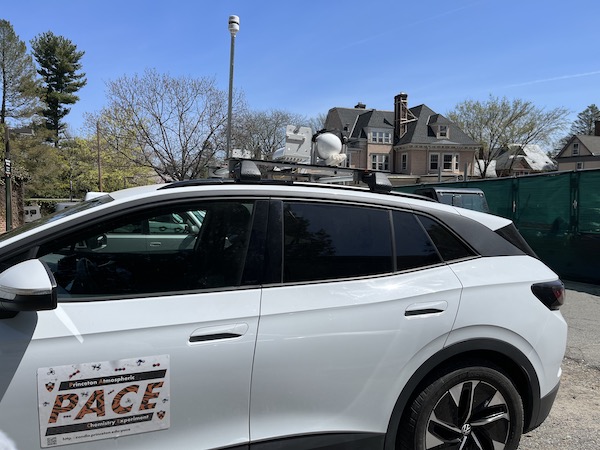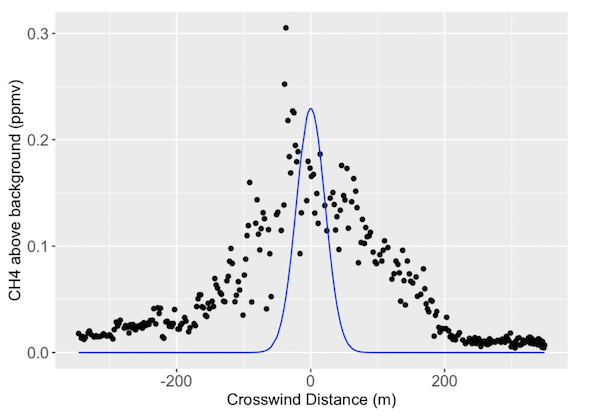On a recent Tuesday, the usual lecture for the course CEE311, Global Air Pollution, was replaced with an atypical data collection session. Each student signed up for a different time slot throughout the day, and small groups met at the parking lot by the E-Quad in order to be driven by Professor Zondlo in the Princeton Atmospheric Chemistry Experiment Mobile Lab.

This car is equipped with various sensors for measuring wind speed, methane, and other greenhouse gasses in the ambient air. It's fully electric, so there are no emissions from the car that could influence the measurements. Inside the car, there's a GPS sensor so that we can pair the measurements to their exact latitude and longitude coordinates.
Professor Zondlo drove us by a nearby wastewater treatment plant, and we recorded the methane levels coming from the plant. Gas plume measurements are highly variable, so to get a better estimate, we drove past the plant ten times (making U-turns in a nearby parking lot) in order to get more data. Once we had this data, we analyzed it and were able to use the Gaussian plume model we'd learned about in class to get an estimate of the methane emission rate from the plant.

This experience was both a welcome change of pace to the usual routine (How often do you get to be driven around by your professor in a decked-out electric car?) and an opportunity to see how an atmospheric chemistry scientist collects and analyzes data. Professor Zondlo uses the mobile lab in his own research, and his group recently published a paper where they performed a similar exercise at a variety of wastewater treatment plants throughout the United States. In being exposed to the real-world methods my professors use in their own research, I've been able to experience what working in different areas of environmental engineering would be like. This has made me feel more prepared to choose my own niche field (water, air, soil, etc.) for graduate school and my future career. I've been consistently impressed with how dedicated my professors are to creating courses that allow me experience what working as an environmental engineer will truly be like.
If you see a car with some strange metal instruments on top driving by, and then see it turn around and drive by you again, don't be alarmed. You might be witnessing the mobile lab in action, collecting data to help understand and combat climate change.






